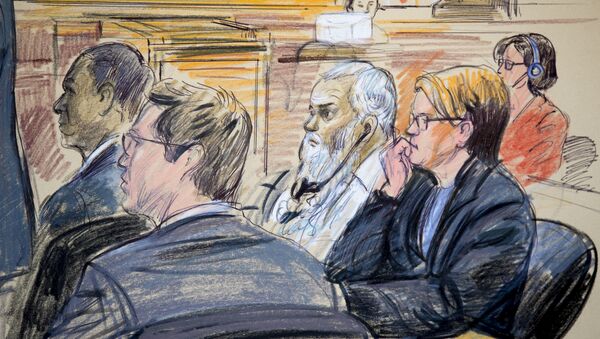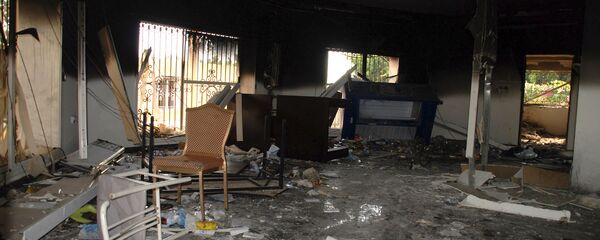The 46-year-old Khatallah was aquitted of the murders of American Ambassador to Libya Christopher Stevens, diplomat Sean Smith and CIA contractors Glen Doherty and Tyrone Woods. The jury came to this decision after five days of deliberation.
Khattalah was found guilty of four terrorism-related charges: supporting terrorists, conspiracy to provide material support to terrorists, destroying US property and placing lives in danger, and illegal use of a firearm. He faces up to 45 years in prison if given the maximum possible sentence.
During the trial, Khatallah's defense team questioned the testimony and credibility of witnesses who claimed that Khatallah organized the attack. They also argued that he was simply a bystander who witnessed the events, rather than driving them. The prosecution presented phone records and drone footage that they described as "indisputable" evidence of Khatallah's guilt.
Khatallah was accused of leading an Islamist militant group that US intelligence reported was one of the perpetrators of the Benghazi attack. He was captured in June 2014 by US commandos and extradited to the US via a navy vessel, questioned by both US military and FBI teams during his journey.
Defense attorneys tried to have the statements made in those interrogations thrown out, arguing that they were coercive and Khatallah was not given the opportunity to have a lawyer present — but US District Judge Christopher R. Cooper denied the motion on the grounds that it was an overseas terrorism case with extraordinary circumstances.
Statement/message to workforce from CIA Director Mike Pompeo on #Benghazi verdict (mobile screenshot version made for @davidmackau) pic.twitter.com/OFb2KAicMx
— Jason Leopold (@JasonLeopold) November 28, 2017
The Benghazi attack, the first killing of an American ambassador in the line of duty in 33 years, has been a hot-button political topic since it occurred on September 11, 2012. One concern that arose were lapses in security at the US consulate that made the attack more devastating. Then-Secretary of State Hillary Clinton took personal responsibility for the security lapses, and they were a major talking point during the 2016 presidential election. On the campaign trail, Donald Trump repeatedly used the Benghazi tragedy to attack Clinton.
— Donald J. Trump (@realDonaldTrump) January 1, 2016



